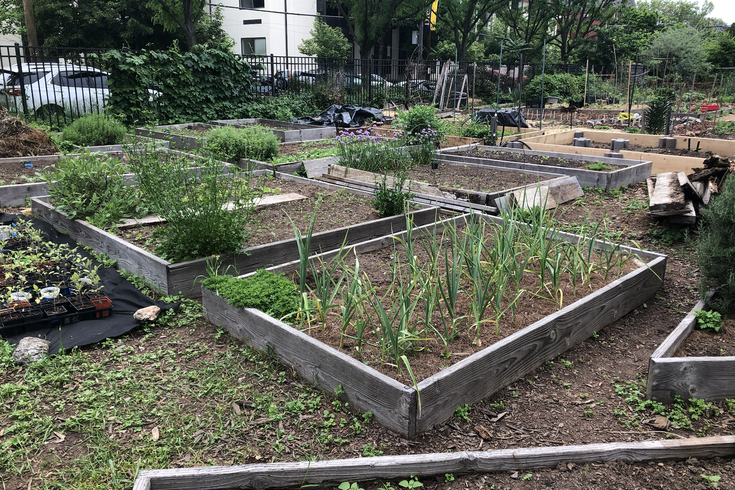
May 10, 2024
 John Kopp/PhillyVoice
John Kopp/PhillyVoice
Philly's urban agriculture plan, released in April 2023, offers a 10-year blueprint for preserving and supporting gardens and farms in the city. Proponents say urban farming help address hunger, combat climate change and localize the food system. Above, the Summer Winter Community Garden in Powelton.
One year after Philadelphia released its first plan for support urban gardening and farming, city officials emphasized the importance of urban agriculture and called for new investments during a City Council hearing on Wednesday.
The urban agriculture plan, released in April 2023, offers a 10-year blueprint for preserving and supporting urban agriculture, which proponents say can help address hunger, combat climate change and localize the food system. At Wednesday's hearing, city officials and urban farming advocates detailed the progress that has been made and how to overcome the challenges ahead.
About 70% of the city's gardens and farms are located in high-poverty neighborhoods, according to Councilmember Kendra Brooks, who organized the hearing. But she said many of these are under the threat of being displaced by development.
"In Philadelphia, we have a long history of urban agriculture and community gardens that have nurtured and stabilized working-class communities," Brooks said. "But rising property values and pressure from developers are directly delaying what has been restored by our community gardeners over generations."
Farm Philly, the urban agriculture branch of the Parks and Recreation department, has been working to establish more gardens and serving as the city's connection to Philly's urban agriculture groups. It established the Eastwick Community Garden Support Coalition and a land access program that allows people to lease city-owned land for gardening for $25 per year.
Farm Philly also plans to open an agricultural resource center in Fairmount Park this winter. The center will allow people to borrow tools and provide resources for gardening, horticulture and environmental stewardship.
In accordance with the Urban Agriculture Plan, the city has funded new farmers markets, launched a farmers market finder tool and implemented the Philly Food Bucks program, which allows residents to use Supplemental Nutrition Assistance Program benefits.
The Philly Food Justice Initiative, a grant program run by the city's health department and the private Reinvestment Fund, offers funding to community-led projects, with priority given to racial minorities, immigrants and people with disabilities. It has awarded nearly $2 million in grants since it was funded in 2019. Last year, it gave out $556,000 and demand was high. It received 79 applications seeking a combined $6.1 million.
"Solutions to food injustice must be community-informed and embody inclusive and equitable processes," said Jennifer Aquilante, a food policy coordinator at the Department of Public Health. "The breadth and depot of organizations doing food justice work in this city is amazing."
But achieving progress isn't quite without barriers.
Ash Richards, director of urban agriculture for Parks and Recreation, said the biggest issue for urban growers is land security. Many growers don't own their spaces, and due to what Richards described as the "spaghetti bowl of land acquisition and disposition issues," it's a struggle to go through the process to ownership. But if they're not the owner of the land, they run the risk of losing their gardens.
"We do in fact believe that urban agriculture is a permanent, viable land use that needs to have a path for preservation into the future," Richards said. "If we don't save (the gardens and farms) now, we will not have them in the future. Once they're gone, they're gone."
Brooks called for investing $1 million in city funding to the Philly Food Justice Initiative, increased funding for Parks and Recreation and reforming the city's land bank so communities can take ownership of their spaces. In some cases, communities have been farming their gardens for decades, but still don't own the spaces.
Iris Brown, who co-founded the Norris Square Neighborhood Project in 1980, is familiar with this. The six gardens that the organization oversees were created between 1980 and 2006 and celebrate the Puerto Rican and West African diaspora cultures. Almost 50 years after the first garden's creation, she asked council to facilitate a process for ownership.
"We know that those (next) 50 years are going to be guaranteed with your help for Norris Square, for us to continue doing what we're doing," Brown said.